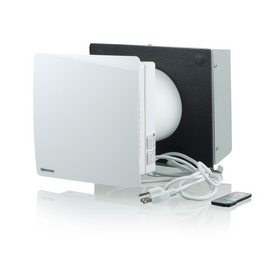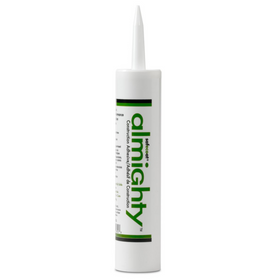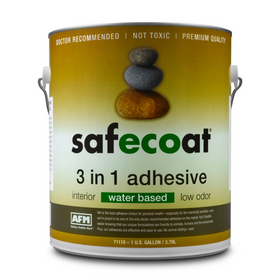
Recycled Glass Countertops: A Comprehensive Guide
Last Updated: Feb 9, 2025Glass is considered ecologically friendly because it is reusable; however, it is one of the longest-lasting human-made materials. According to the New Hampshire Department of Environmental Services, glass can take upwards of 1 million years to decompose in the natural environment. Therefore, finding ways to recycle and reuse broken glass is an essential element of a sustainable household. Recycled glass countertops are one practical way to turn broken glass into a functional and aesthetically pleasing kitchen centerpiece.
Table of Contents
- What Are Recycled Glass Countertops?
- Are Recycled Glass Countertops Environmentally Friendly?
- How Much Are Recycled Glass Countertops?
- What Are The Advantages Of Recycled Glass Countertops?
- What Are The Disadvantages Of Recycled Glass Countertops?
- Is Recycled Glass Countertop Pigment Safe?
- Are Recycled Glass Countertops Durable?
- Are Recycled Glass Countertops Heat Resistant?
- Do Recycled Glass Countertops Require Maintenance?
- Where to Buy Recycled Glass Countertops
What Are Recycled Glass Countertops?
Recycled glass countertops are hard, smooth countertops for kitchens, dining rooms, and even bathrooms made from recycled glass. The pieces of glass used in this innovative countertop alternative can be either post-consumer or pre-consumer waste. The glass is encased within a cement or petroleum-based binder to offer structural integrity. In most cases, the finished product consists of anywhere between 70 to 85 percent of recycled content.

Are Recycled Glass Countertops Environmentally Friendly?
Incorporating recycled content into our homes is undoubtedly an environmentally friendly practice. Unfortunately, the United States generated 569 million tons of construction and demolition debris in 2017. Ninety percent of that waste comes from the demolition of older buildings. Glass debris accounts for 11.4 million metric tons of waste each year. From old windows to glass bottles, glass waste often ends up in the trash and eventually in our landfills.

Besides being a hazard for people who work in the trash collection and landfill industries, virtually all glass can be recycled. According to Robert Weisenburger Lipetz, executive director of the Glass Manufacturing Industry Council (GMIC), “glass is 100% recyclable. It has an unlimited life and can be melted and recycled endlessly to make new glass products with no loss in quality.” Unfortunately, despite this unique, inherent quality of glass, only about one-third of all glass products end up in the recycling bin.
Natural home construction techniques, such as earth ships, are designed to allow innovative and creative homeowners to directly incorporate discarded glass bottles into their walls. For example, check out this recently published home feature on a New York Earth ship that included over 10,000 wine bottles into its walls. If you can't find a place in your walls for old glass bottles, recycled glass countertops are another option.
How Much Are Recycled Glass Countertops?
Homeowners can expect to pay anywhere from $45 to $190 per square foot for recycled glass countertops. More expensive recycled glass countertops usually include added benefits, such as additional heat resistance, higher durability to prevent cracking, stain resistance, and treatments that do not require the countertops to be resealed.
Several factors can also influence recycled glass countertops costs per square foot. This includes the market it's being sold in, shipping costs, distributor stock availability, colors, the type of glass used, or patterns.

What Are The Advantages Of Recycled Glass Countertops?
Recycled glass countertops are a way to avoid discarded glass waste from ending up in landfills, where it will take one million years to decompose. The average size of a kitchen countertop is 30 square feet. With about 138 million housing units in the United States, we could recycle all of our discarded glass into over 4 billion square feet of beautiful kitchen countertops.
Recycled glass countertops are incredibly durable and offer stain resistance, higher heat resistance, and UV stability. Because a diverse blend of glass is used in each countertop, homeowners can rest assured that their countertop will be 100 percent unique. In addition, recycled glass countertops made with acrylic, petroleum-based binders will require no sealant. They can even be back-lit with LED light strips for a beautiful, modernist touch to your kitchen.
What Are The Disadvantages Of Recycled Glass Countertops?
As with any household product, there are also a few drawbacks to recycled glass countertops. This price range is significantly more expensive than synthetic, run-of-the-mill countertops. However, they can be less costly than granite, marble, or quartz countertops.
Another consideration with recycled glass countertops is that they can crack when excessive weight is placed near the corners. This threat is less of a concern with countertops made with cement binders. However, when not sealed correctly, the cement binders can quickly stain when exposed to highly acidic foods such as tomato sauce.
From the sustainability lens, the recycled glass content used in these countertop options can certainly help reduce your home's embodied energy footprint. Unfortunately, some foreign companies are beginning to export these types of countertops to the USA. Recycled glass countertops are extremely heavy, weighing at least 14.5 pounds per square foot. The embodied energy footprint that comes with shipping these products across the ocean reduces any environmental benefits of incorporating recycled glass content. The LEED certification program gives additional credit to the regional manufacturing of recycled glass countertops.

Is Recycled Glass Countertop Pigment Safe?
One of the unique aspects of recycled glass countertops is that they can come in various colors and designs. Cement-bonded glass countertops often resemble granite or quartz countertops. In addition, petroleum-based resin binders can include several pigments that can add a splash of color to your kitchen's interior design. Unfortunately, not all dyes are safe. For example, toxic pigments used on a surface to cut up your vegetables are not a good idea.
Energy Saving Products for the Home
Shop home improvement products that help save and conserve energy (power) in your home.

Vents TwinFresh Comfo RA1-50-2 Ductless Energy Recovery Ventilator
Vents
In Stock

Stiebel Eltron Accelera 300 E Heat Pump Water Heater
Stiebel Eltron
In Stock

Emporia Classic Level 2 48 AMP EV Charger UL Listed
Emporia
In Stock
2 Colors

AFM Safecoat Almighty Adhesive Case of 12
AFM Safecoat
In Stock

Stiebel Eltron CON 300-2 Premium Wall-Mounted Convection Heater - 202030
Stiebel Eltron
In Stock

AFM Safecoat 3 in 1 Adhesive
AFM Safecoat
In Stock

QuickBOLT QB2 with Microflashing Multi Roof Mount Solar Panel Fastener Kit
QuickBOLT
In Stock

Stiebel Eltron Accelera 220 E Heat Pump Water Heater
Stiebel Eltron
In Stock

Stiebel Eltron DHC-E 8/10-2 Plus Point-of-Use Electric Tankless Water Heater - 202145
Stiebel Eltron
In Stock

Stiebel Eltron CON 150-1 Premium Wall-Mounted Convection Heater - 202026
Stiebel Eltron
In Stock
White lead, cobalt, cadmium, and manganese are a few of the components of potentially toxic pigments that could be used in recycled glass countertops. When searching for the best countertop, prioritize manufacturers that use only non-toxic and organic pigment options.
Are Recycled Glass Countertops Durable?
When taken care of properly, recycled glass countertops can be extremely durable. The non-porous surface of these types of countertops offers superior stain resistance. Also, glass countertops are not susceptible to scorching, burning, or melting because of the manufacturing process. That means you can place hot pots and pans onto the surface without searching for your hot pad.
As we mentioned above, the main concern with recycled glass countertops is potential cracks or chips that can occur along the edges. By avoiding placing heavy objects near the corners of the countertop, this concern can easily be managed.
Are Recycled Glass Countertops Heat Resistant?
Yes, recycled glass countertops are heat resistant. The heat resistance of recycled glass countertops is mainly impacted by the type of glass and binders (cement or resin) used. While recycled glass countertops resist high temperatures for a brief period, rapid change of hot and cold temperatures can be damaging. Therefore, the use of a hot pad is recommended.

Do Recycled Glass Countertops Require Maintenance?
Recycled glass countertops that are made from cement binders will require periodic sealing. Cement binders do offer superior strength and durability. However, cement is a porous material and is vulnerable to stains if a sealant is not applied. Recycled glass countertops that are made with acrylic binders, on the other hand, will require no waxing or sealing. Simply cleaning up the countertop with a non-toxic kitchen cleaner after cooking is the only needed maintenance.
Where to Buy Recycled Glass Countertops

IceStone Recycled Glass Countertops
IceStone is another company specializing in recycled kitchen countertops that are both sustainable and artistic. They apply a new treatment exclusively made for IceStone that becomes a part of the material. Therefore, it doesn't need to be sealed again once it leaves the factory. This new treatment makes the countertop stain-resistant and incredibly high heat resistance and UV stability.

GEOS Recycled Glass Countertops
GEOS recycled glass surfaces, for example, uses acrylic binders that are non-porous and practically maintenance-free. This surface is backed by a 15-year warranty and does not need to be sealed or waxed after manufacturing.

ECO by Cosentino
ECO by Cosentino manufacturers recycled glass countertops from recycled mirrors, glass, porcelain, earthenware, and vitrified ash. Like other recycled glass countertop manufacturers, the countertops are 75% recycled materials. The water used during manufacturing can be reused. ECO by Cosentino slabs is available in 1.2 cm, 2 cm, and 3 cm thicknesses.
Tobias Roberts
Tobias runs an agroecology farm and a natural building collective in the mountains of El Salvador. He specializes in earthen construction methods and uses permaculture design methods to integrate structures into the sustainability of the landscape.
